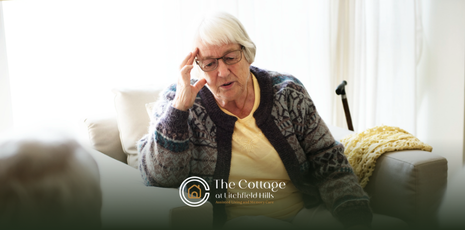The Role of Staff in Supporting Seniors in Assisted Living

Key Highlights
- Assisted living staff provide personalized care tailored to each senior’s needs.
- Staff help seniors maintain independence while ensuring safety and health.
- Emotional support and companionship are integral parts of daily care.
- Trained staff assist with medical management, daily living activities, and specialized needs like memory care.
- Collaboration between staff, families, and healthcare providers ensures comprehensive care.
As our loved ones age, many families consider assisted living as a supportive environment where seniors can thrive while receiving necessary care. A cornerstone of quality assisted living is the dedicated staff who work tirelessly to ensure seniors remain safe, healthy, and engaged. From personal care to emotional support, these professionals play a pivotal role in shaping a senior's daily life and overall well-being.
Supporting Assisted Living Seniors: How Staff Can Help
Personalized Care and Daily Living Assistance
One of the primary responsibilities of assisted living staff is providing personalized care. Every senior has unique needs, preferences, and routines. Staff assess each resident’s abilities and limitations, creating a tailored care plan to support independence while ensuring safety.
Typical daily living assistance may include:
- Personal hygiene: bathing, grooming, and dressing assistance
- Mobility support: helping residents move safely around the facility
- Meal preparation and nutrition: ensuring seniors receive balanced, appetizing meals
- Medication management: organizing, monitoring, and reminding residents about medications
By assisting with these daily tasks, staff help seniors maintain dignity and independence, reducing stress for both residents and their families.
Health Monitoring and Medical Support
Assisted living staff are often trained to monitor residents’ health and coordinate with healthcare providers. Regular health checks, vital signs monitoring, and attention to changes in behavior or physical condition allow staff to address potential issues promptly.
Examples of Health Support in Assisted Living
| Health Area | Staff Role | Frequency/Notes |
|---|---|---|
| Medication Management | Organize medications, administer as prescribed, monitor adherence | Daily or per schedule |
| Vital Signs Monitoring | Track blood pressure, pulse, temperature | Weekly or as needed |
| Chronic Condition Support | Assist with diabetes, heart conditions, arthritis, etc. | Ongoing, personalized |
| Coordination with Healthcare Providers | Schedule appointments, share observations, report concerns | As needed |
| Emergency Response | Respond to falls, sudden illness, or urgent health concerns | 24/7 |
This medical oversight provides peace of mind to families, knowing their loved ones are in capable hands.
Emotional Support and Companionship
Beyond physical care, emotional well-being is a critical aspect of assisted living. Seniors often face challenges such as isolation, grief, or anxiety about aging. Staff play a vital role in offering companionship, fostering social connections, and providing mental stimulation.
Activities and support may include:
- Friendly conversations and daily check-ins
- Organizing group activities like games, music therapy, or arts and crafts
- Encouraging hobbies and interests to maintain cognitive engagement
- Providing memory care support for residents with dementia or Alzheimer’s
These interactions help seniors feel valued, engaged, and emotionally supported, which can positively impact overall health.
Specialized Support for Memory Care
For residents with cognitive impairments, such as Alzheimer’s or dementia, trained staff provide specialized care that addresses unique challenges. Memory care support focuses on safety, structured routines, and techniques to reduce confusion or agitation.
Key memory care staff responsibilities include:
- Creating predictable daily routines to reduce anxiety
- Using memory aids, cues, and reminders for activities and self-care
- Monitoring behaviors and intervening in a calm, supportive manner
- Engaging residents in activities designed to maintain cognitive function
This specialized care ensures that seniors with memory loss remain as independent and comfortable as possible while staying safe.
Supporting Families Through Communication and Guidance
Assisted living staff also act as liaisons between residents and their families. Clear communication helps families stay informed about their loved one’s health, routines, and well-being. Staff may provide:
- Updates on daily activities, health changes, or concerns
- Guidance on care options or lifestyle adjustments
- Support in navigating the transition to assisted living
By fostering strong family-staff collaboration, seniors experience a more seamless, reassuring living environment.
Training and Professionalism
The effectiveness of assisted living staff relies on proper training and professionalism. Staff are trained in:
- Elder care best practices
- Medication administration and health monitoring
- Emergency response procedures
- Communication and empathy skills
- Specialized dementia and memory care techniques
Ongoing education ensures staff stay current with the latest care approaches, providing the highest quality support for seniors.
Encouraging Independence and Quality of Life
While providing care is essential, skilled staff also focus on promoting independence. Encouraging seniors to participate in their care, make choices, and remain active helps maintain physical and cognitive abilities.
Practical examples include:
- Allowing residents to choose their meals or daily routines
- Providing opportunities for physical exercise or mobility activities
- Supporting hobbies and social engagement
This approach balances assistance with autonomy, fostering a sense of purpose and well-being.
Final Thoughts
The staff in assisted living communities play a multifaceted role, from physical and medical care to emotional support and family communication. Their dedication ensures that seniors can enjoy a safe, enriching, and dignified lifestyle. For families seeking a supportive environment for their loved ones, communities with trained, compassionate staff are invaluable.
At The Cottage at Litchfield Hills, our team is committed to delivering exceptional care and enhancing the lives of every resident through personalized attention, professional expertise, and heartfelt companionship. Contact us today!
Frequently Asked Questions
What types of care do assisted living staff provide?
Assisted living staff provide daily living assistance, health monitoring, medication management, emotional support, memory care, and social engagement activities.
How do staff support seniors with memory loss?
Staff use structured routines, memory aids, and specialized activities to reduce confusion and maintain cognitive function while ensuring safety.
Are assisted living staff trained for medical emergencies?
Yes, staff receive training in emergency response, vital signs monitoring, and coordination with healthcare providers to address urgent situations.
How do staff help seniors maintain independence?
Staff encourage seniors to participate in daily activities, make personal choices, and engage in physical and cognitive exercises.
How does communication with families work in assisted living?
Staff provide regular updates on health, daily activities, and any concerns, while offering guidance and support to help families navigate their loved one’s care.
Sources:
- https://www.healthinaging.org/tools-and-tips/caregiver-guide-problems-daily-living
- https://evansmedicalgroup.com/importance-of-health-monitoring-for-seniors/
- https://www.nccdp.org/the-ultimate-guide-to-caregiver-training/






